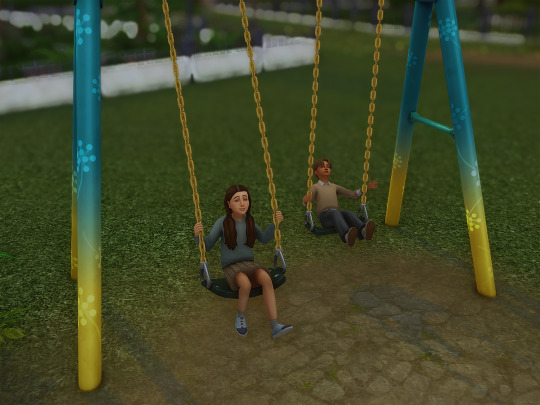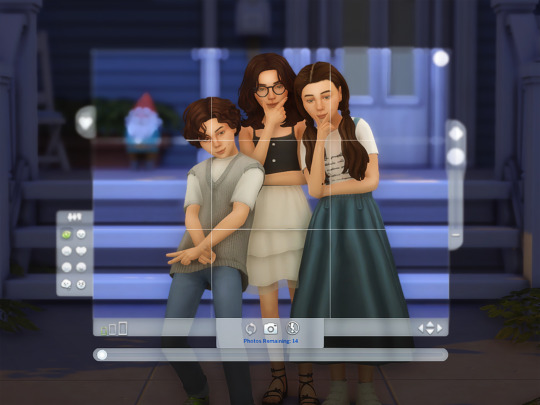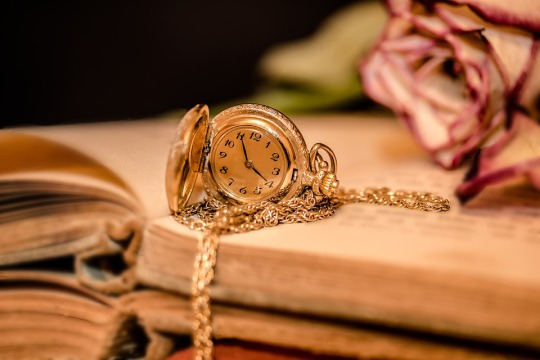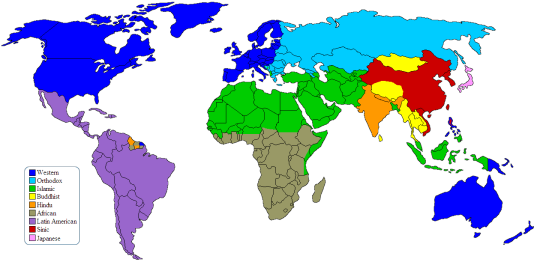#samuel huntington
Photo

Civilizations according to Samuel Huntington.
Source: wikipedia, S.Huntington: The Clash of Civilizations
by dodi_maps
11K notes
·
View notes
Text
“A wave of terror and horror is breaking over us all. I don’t have the heart to do much besides wait for news to trickle out from the hospital in Pennsylvania where Salman was taken by helicopter and let the memories come back to me—my memories of Salman Rushdie over the 33 years that have passed since Ayatollah Khomeini publicly sentenced him to death.
(…)
Another cowardly soul comes to mind. This one was once France’s foreign minister, Roland Dumas. La Règle du jeu, a literary magazine that Salman and I and some others founded in 1990, invited Salman to come to France to meet up with some of his Parisian friends. As I remember, the minister behaved shamefully, decreeing that Salman, a citizen of Europe, needed a visa to enter France. Then he denied the visa on the grounds that he couldn’t guarantee Salman’s security. Dumas’s own colleague, Minister of Culture Jack Lang, protested. My friend the businessman François Pinault offered to lend us a plane and to provide the necessary protection. President François Mitterrand himself had to settle the matter. And lo, the France that was hoping for trade deals and arms sales yielded to the spirit of Voltaire. Bienvenue, Monsieur Salman.
Yet another spineless individual: Prince Charles. In 1993, I met him at a lunch hosted by the British embassy in Paris. “Salman is not a good writer,” growled the prince when I asked him what he thought of the whole affair, adding that “protecting him costs England’s crown dearly.” On this, Martin Amis, another of Salman’s friends, later remarked: “It costs a lot more to protect the Prince of Wales, who has not, as far as I know, produced anything of interest.” The press and public opinion, for once, took the side of the persecuted writer.
(…)
I remember a conversation we had in front of an audience in London, where Salman said how much he missed the Islam of his childhood in India. “The greatest of Muslim thought has been broad-minded,” he explained. “When I think back to my grandparents’ time, my parents’ time, Islam strove to be cosmopolitan. It raised questions and engaged in argument. It was alive.” Salman is the son of that form of Islam. He obviously has nothing against blasphemy, because blasphemy, in his eyes, is inseparable from freedom of expression and thought; but neither do I believe that he has ever blasphemed against the creed of his parents.
I remember a conversation between us, in Paris, on the Jewish radio station RCJ, when he speculated on what the fatwa would have entailed if it had been issued in the era not of the fax machine but of social media. “A tweet is all it takes,” he said, as I recall, “to stir up the planet. Five minutes on YouTube is enough to trigger simultaneous demonstrations throughout the world. If my fatwa had occurred in the internet age, would it have been fatal? I don’t know.” Now he knows. Alas.
(…)
I remember a day on the beach in Antibes, the pleasure of being alive, the noon sun, heat waves rippling as far as you could see, sharing a love of movies and actresses, especially Jean-Luc Godard’s Contempt, the real owner of the Casa Malaparte in Capri (which Godard used as his film’s main setting). That day, Salman wanted nothing so much as to be able one day to do a remake of Dr. No or From Russia With Love. The good life. An appetite for living and for multiplying the ways of living. The opposite of a condemned man.
(…)
I mull over our dinners together in New York in recent years. He didn’t want to hear any more about the fatwa. We talked about François Rabelais, Toni Morrison’s Song of Solomon, Laurence Sterne, George Eliot (a writer he could never get into), and V. S. Naipaul, whose death had devastated him. Literature before and above all else! The wish, faced with the fracas of the world, to say, “Please, turn down the sound!” Which obviously did not prevent him, a few months ago, at the very beginning of the war in Ukraine, from deciding that it was urgent for us to pen an appeal for sanctions against Russia and to help persuade Sting and Sean Penn to join the campaign.
What has struck me, over all these years, is the quiet heroism of my friend. He understood very well that, from time to time, a Western government would expel a fake Iranian diplomat and that this might be out of concern for his safety because of the fatwa. He knew that self-styled friends of the Muslim people were still insisting, despite the Charlie Hebdo massacre and other slaughters, that no one had the right to offend others’ faith and that, if harm should befall the offender, he had only himself to blame. And never did a speaking engagement go by without his being asked the eternal question: Knowing everything he knew today, did he ever regret having written The Satanic Verses, a work that has followed him like a curse?
(…)
And once—just once, a long time ago—I heard him make an odd remark about the knack master killers have for ruminating on their vengeance and carrying it out coldly when least expected. Think Mussolini and the Rosselli brothers; Stalin and Ignace Reiss; Putin and the poisoned oligarchs. And one day, a Shiite Ramón Mercader whom no one would see coming.
I believe that is where things stood, last Friday at the Chautauqua Institution, when Salman Rushdie saw the man who meant to execute him leap onto the stage.
Will this still be where things stand when he emerges from the hell of pain in which I imagine him? The artist in him will continue to believe that life is a tragedy, a tale full of sound and fury, told by an idiot. And he will not be surprised to hear friends tell him that if one can be Dickens, Balzac, and Tagore in a single life, one could well be considered immortal.
But he will read the article in Iran, the semi-official newspaper of the regime, which, while he was fighting death, rejoiced that “the devil’s neck” was “struck with a razor.” He will see the ultraconservative newspaper Kayhan pronouncing a blessing, while he was recovering, on “the hand of the man who tore the neck of the enemy of God with a knife.”
And Salman will have to get used to the idea, one that always petrified him, of being a human symbol, a hostage in a war of the worlds in which, like it or not, his own life and death have become everybody’s business. That is why those of us who could not protect him—all of us—now have a duty to perform.
This act of terror against his body and his books is an absolute act of terror against all the world’s books. Such an outrage against freedom of expression calls for a ringing response.
Individual nations will have their say. The international community, too, must signal to the sponsors of this crime that this Salman Rushdie affair has created a new division, a time before and a time after.
As for his friends, his peers, media, and others for whom public opinion counts for something, we all have a commitment to make. And that is to ensure that the author of The Satanic Verses receives the highest of literary honors. To see that, in the name of all his fellow authors and in his own name, Salman Rushdie receives the Nobel Prize in Literature that is due to be awarded in a few weeks.”
“In October, the Swedish Academy will have the opportunity both to chip away at its record of overlooking many of the most profound writers in its field of vision and to help correct its woeful hesitation in standing up for the values it ought to champion. In the mid-nineteen-eighties, Salman Rushdie’s masterpieces, “Midnight’s Children” and “Shame,” had been translated into Persian and were admired in Iran as expressions of anti-imperialism. Everything changed on February 14, 1989, when Ayatollah Khomeini condemned as blasphemous “The Satanic Verses,” a novel that he hadn’t bothered to read, and issued a fatwa calling for the author’s death. Khomeini’s edict helped inspire book burnings and vicious demonstrations against Rushdie from Karachi to London.
Rushdie, who could never have anticipated such a reaction to his work, spent much of the next decade in hiding and under heavy guard. The literary world was hardly unanimous in his defense. Roald Dahl, John Berger, and John le Carré were some of the writers who judged Rushdie to have been insufficiently attentive to clerical sensitivities in Tehran. Among the more cowardly acts of the time was the Swedish Academy’s refusal to issue a statement in support of Rushdie. The Academy waited twenty-seven years—a period during which booksellers in the United States and in Europe were firebombed and Rushdie’s Japanese translator was murdered––before it roused itself to condemn the fatwa as a “serious violation of free speech.” Stern stuff.
Rushdie, for his part, behaved with impeccable bravery and, even more remarkably, with good humor. As he put it in a recent essay, “While I had not chosen the battle, it was at least the right battle, because in it everything that I loved and valued (literature, freedom, irreverence, freedom, irreligion, freedom) was ranged against everything I detested (fanaticism, violence, bigotry, humorlessness, philistinism, and the new offense culture of the age).”
Through it all, Rushdie never stopped writing, and, eventually, he emerged from his highly sequestered existence and resumed teaching, lecturing, and enjoying himself. The tabloids seemed aghast that he would dare go to parties, concerts, and ballgames, as if this somehow undermined his standing as a hero of the free word. He didn’t care. He was so insistent on living his life without performing the role of a “Statue of Liberty,” as he put it, that he played himself on an episode of “Curb Your Enthusiasm,” counselling Larry David on the forbidden pleasures of “fatwa sex.” Solzhenitsyn was capable of many deeds, but not that.
At the same time, no one in our era has been a more tireless champion of free speech. As an essayist and as the president of pen America, Rushdie spoke up for artists, writers, and journalists everywhere who were under assault. He has been especially vigilant in recent years about threats to free expression in the two largest democracies: India, where he was born and raised, and the United States, his adopted home for the past two decades. His judgments could sting. When a group of six writers refused to attend a pen gala, in 2015, because it was honoring the editors of the French satirical magazine Charlie Hebdo, Rushdie said, “If pen as a free-speech organization can’t defend and celebrate people who have been murdered for drawing pictures, then frankly the organization is not worth the name.” Of the writers who spurned the dinner, he said, “I hope nobody ever comes after them.”
(…)
As a literary artist, Rushdie is richly deserving of the Nobel, and the case is only augmented by his role as an uncompromising defender of freedom and a symbol of resiliency. No such gesture could reverse the wave of illiberalism that has engulfed so much of the world. But, after all its bewildering choices, the Swedish Academy has the opportunity, by answering the ugliness of a state-issued death sentence with the dignity of its highest award, to rebuke all the clerics, autocrats, and demagogues—including our own—who would galvanize their followers at the expense of human liberty. Freedom of expression, as Rushdie’s ordeal reminds us, has never come free, but the prize is worth the price.”
“When the Rushdie affair took off in early 1989, America’s campus culture wars had only just begun. Although I was riveted by both controversies, I would not have connected them at the time. What was then called political correctness (now called “woke”) seemed to be something of a different order than the command of a religious ruler to execute a literary figure in the name of the Muslim faith.
Yet the professors who kicked off the campus culture wars did see a link. They argued that globalization requires us to demote or abolish the Western civilization narrative. Eurocentrism must go, they said, since the sensitivities of ethnically non-Western students were on the line.
(…)
In those days, there was plenty of academic controversy around Samuel P. Huntington’s 1996 book, The Clash of Civilizations. Probably no book has more successfully predicted the war on terror that soon followed, or the rise of China that preoccupies us today. Yet academics uniformly slammed Huntington’s book for the sin of “essentialism.” Huntington was supposedly guilty of overplaying cultural difference, while underplaying the extent to which cultural borders overlap, interpenetrate, and blend. In other words, the same academics who treated cultural difference as real and significant — especially when criticizing the West — could turn around and “deconstruct” the supposed illusion of culture when the issue was non-Western intolerance. For academics, Huntington’s book became one more reason to shun the teaching of Western civilization, and indeed to abandon the word “civilization” itself.
(…)
Surveys now show that up to two-thirds of students approve of shouting down campus speakers, while almost a quarter believe that violence can be used to cancel a speech. These are the views of the generation that grew up without required courses in Western civilization, a course the core theme of which was the long, bloody, and difficult path by which our freedoms were conceived and established. Those courses nurtured a sense of reverence around our liberties, and a sense of shame in those violating the liberties of others. We have lost both the reverence and the shame.
The upshot is that globalization has made us more vulnerable to foreign threats, while our misguided response to globalization has damaged our greatest weapon against those very threats: our regard for our own tradition of liberty, and the principles that lay behind it. Our horror at the assault on Rushdie is a sign that there is life in our tradition still. The culturally alien nature of the attack reminds us that our tradition of freedom is real, distinctive, and worth preserving. Yet our continuing reluctance to affirm our own history and principles — especially in our schools — means that time is running short. Freedom, so to speak, is on a ventilator. We cannot remain a “safe haven for exiled writers” if we are not a safe haven for ourselves.”
#rushdie#salman rushdie#bernard henri levy#levy#huntington#samuel huntington#clash of civilizations#free speech#freedom of speech#first amendment#nobel prize#western civilization#stanley kurtz
2 notes
·
View notes
Text
Genealogy
How is Franklin Delano Roosevelt (1882-1945), 32nd President of the United States, related to -~-~ Samuel Huntington (1731-1796), a signatory of the American Declaration of Independence?
........... Simon Huntington + Sarah Clark
1629-1706 1633-1721
|
Simon Huntington Joseph Huntington
1659-1736 1661-1747
+ +
Lydia Gager Rebecca Adgate
1663-1737 1666-1748
| |
(continues to … ) (continues to … )
| |
Franklin Roosevelt Samuel Huntington
1882-1945 1731-1796
#history#genealogy#franklin roosevelt#fdr#president of the united states#potus#samuel huntington#american declaration of independence
0 notes
Text
Andrés Legacy💟







Morgan got a promotion | Morgan and Samuel had some alone time while the kids were at school and Morgan had the day off | Emilia met a new friend at school and he came home to hang out | Valerie also made a new friend and he came over to do homework

I finally got an in-game picture of the kids!!
#q'd#this is Valerie's new best friend#shes so focused on school#and he came over and just autonomously started doing homework#I'm trying to make a point to get my sims to have friends#its hard lol#anywaysss#Morgan Andrés#Samuel Olson#Emilia Andrés#Lyle Huntington III#Gunner Ojo#Valerie Andrés#Andrés Legacy#my sims#the sims 4#the sims#sims#simblr#the sims 4 gameplay#ts4 gameplay#the sims 4 screenshots#ts4 screenshots#ts4 legacy#the sims 4 community
3 notes
·
View notes
Text
CONSERVADORISMO X REACIONARISMO - A VERDADE!
CONSERVADORISMO X REACIONARISMO – A VERDADE!
Cresci ouvindo políticos, intelectuais e profissionais da mídia em geral, tratarem o conservadorismo como uma espécie de comportamento atribuído às pessoas apegadas ao passado, contra qualquer tipo de inovação e os benefícios possíveis. De tanto ouvir a mesma interpretação repetida diariamente, ad nauseam, cheguei mesmo a pensar que tratava-se de uma verdade inquestionável.
Foi então que, indo…

View On WordPress
0 notes
Text
obviously people analyzing every historical and contemporary religion through the unexamined base assumptions of christianity is a real & established problem but the way some people overcorrect to a position of total mystification and exoticization where they seriously argue that it is ontologically impossible to draw any comparison between any two religions or make general analyses of the social functions of religion is so unserious. some real samuel huntington shit
276 notes
·
View notes
Text

The Invention of Hispanics: What It Says About the Politics of Race
America’s surging politics of victimhood and identitarian division did not emerge organically or inevitably, as many believe. Nor are these practices the result of irrepressible demands by minorities for recognition, or for redress of past wrongs, as we are constantly told. Those explanations are myths, spread by the activists, intellectuals, and philanthropists who set out deliberately, beginning at mid-century, to redefine our country. Their goal was mass mobilization for political ends, and one of their earliest targets was the Mexican-American community.
These activists strived purposefully to turn Americans of this community (who mostly resided in the Southwestern states) against their countrymen, teaching them first to see themselves as a racial minority and then to think of themselves as the core of a pan-ethnic victim group of “Hispanics”—a fabricated term with no basis in ethnicity, culture, or race.

This transformation took effort—because many Mexican Americans had traditionally seen themselves as white. When the 1930 Census classified “Mexican American” as a race, leaders of the community protested vehemently and had the classification changed back to white in the very next census. The most prominent Mexican-American organization at the time—the patriotic, pro-assimilationist League of United Latin American Citizens (LULAC)—complained that declassifying Mexicans as white had been an attempt to “discriminate between the Mexicans themselves and other members of the white race, when in truth and fact we are not only a part and parcel but as well the sum and substance of the white race.”

Tracing their ancestry in part to the Spanish who conquered South and Central America, they regarded themselves as offshoots of white Europeans.
Such views may surprise readers today, but this was the way many Mexican Americans saw their race until mid-century. They had the law on their side: a federal district court ruled in In Re Ricardo Rodríguez (1896) that Mexican Americans were to be considered white for the purposes of citizenship concerns. And so as late as 1947, the judge in another federal case (Mendez v. Westminster) ruled that segregating Mexican-American students in remedial schools in Orange County was unconstitutional because it represented social disadvantage, not racial discrimination.
At that time Mexican Americans were as white before the law as they were in their own estimation.

The process would only work if Mexican Americans “accepted a disadvantaged minority status,” as sociologist G. Cristina Mora of U.C. Berkeley put it in her study, Making Hispanics (2014). But Mexican Americans themselves left no doubt that they did not feel like members of a collectively oppressed minority at all. As Skerry noted, “[the] race idea is somewhat at odds with the experience of Mexican Americans, over half of whom designate themselves racially as white.” Even in the early 1970s, according to Mora, many Mexican-American leaders retained the view that “persons of Latin American descent were quite diverse and would eventually assimilate and identify as white.” And yet “Spanish/Hispanic/Latino” is now a well-established ethnic category in the U.S. Census, and many who select it have been taught to see themselves as a victmized underclass. How did this happen?
In other words, a distinctive set of beliefs, customs, and habits supported the American political system. If the Cajun, the Dutch, the Spanish—and the Mexicans—were to be allowed into the councils of government, they would have to adopt these mores and abandon some of their own. It is hard to argue that this formula has failed. Writing in 2004, political scientist Samuel Huntington reminded us that
“Millions of immigrants and their children achieved wealth, power, and status in American society precisely because they assimilated themselves into the prevailing culture.”
Indeed, merely calling Mexican-Americans a ‘minority’ and implying that the population is the victim of prejudice and discrimination has caused irritation among many who prefer to believe themselves indistinguishable [from] white Americans…. [T]here are light-skinned Mexican-Americans who have never experienced the faintest…discrimination in public facilities, and many with ambiguous surnames have also escaped the experiences of the more conspicuous members of the group.”
Even worse, there was also “the inescapable fact that…even comparatively dark-skinned Mexicans…could get service even in the most discriminatory parts of Texas,” according to the report. These experiences, so different from those of Africans in the South or even parts of the North, had produced
a long and bitter controversy among middle-class Mexican Americans about defining the ethnic group as disadvantaged by any other criterion than individual failures. The recurring evidence that well-groomed and well-spoken Mexican Americans can receive normal treatment has continuously undermined either group or individual definition of the situation as one entailing discrimination.
It is incumbent on us to pause and note exactly what these UCLA researchers were bemoaning. Their own survey was revealing that Mexican-Americans’ lived experiences did not square with their being passive victims of invidious, structural discrimination, much less racial animus. They owned their own failures, which—their experience told them—were remediable through individual conduct, not mass mobilization. Their touchstones were individualism, personal responsibility, family, solidarity, and independence—all cherished by most Americans at the time, but anathema to the activists.
The study openly admitted that reclassification as a collective entity serves the “purposes of enabling one to see the group’s problems in the perspective of the problems of other groups.” The aim was to show “that Mexican Americans share with Negroes the disadvantages of poverty, economic insecurity and discrimination.” The same thing, however, could have been said in the late 1960s of the Scots-Irish in Appalachia or Italian Americans in the Bronx. But these experiences were not on the same level as the crushing and legal discrimination that African Americans had faced on a daily basis. That is why the survey respondents emphasized “the distinctiveness of Mexican Americans” from Africans and “the difference in the problems faced by the two groups.” The UCLA researchers came out pessimistic: Mexican Americans were “not yet easy to merge with the other large minorities in political coalition.”
Thereafter, militants from La Raza, MALDEF, and other organizations put pressure on the Census Bureau to create a Hispanic identity for the 1980 Census—in order, as Mora puts it, “to persuade them to classify ‘Hispanics’ as distinct from whites.”
The Hispanic category was a Frankenstein’s monster, an amalgam of disparate ethnic groups with precious little in common.
The 1970 Census had included an option to indicate that the respondent was “Mexican, Puerto Rican, Cuban, Central or South American, [or] Other Spanish.” But re-categorizing Mexican Americans and lumping them in with other residents of Latin American descent under a “Hispanic American” umbrella was a necessary move, Mora writes, because “this would best convey their national minority group status.”
The law states that “a large number of Americans of Spanish origin or descent suffer from racial, social, economic, and political discrimination and are denied the basic opportunities that they deserve as American citizens.” The very thing that defined Hispanics was victimhood.
IT IS SHOWN THAT THE HUMAN CATEGORY "WHITE" WAS BUILT UPON THE IDEA OF THAT BRITISH AS WHITE, CHRISTIAN, OF THEIR ESSENCE FREE,AND DESERVING OF RIGHTS AND PRIVILEGES FROM WHICH THOSE INSUFFICIENTLY BRITISH -LIKE COULD BE DENIED. JACQUELINE BATTALORA "BIRTH OF A WHITE NATION.
#hispanics#latina#afro latina#curvy latina#latin girls#latinx#sexy latina#thick latina#latino#kemetic dreams#brownskin#brown skin#mexican#mexicana#mexico#mexique#mextagram#white#black and white#white house#census data#censura#qsmp census bureau#u.s. census bureau#tumblr censure#the invention of the Hispanic#african#afrakan#afrakans#africans
72 notes
·
View notes
Text
US Presidential Election 1788-89
Okay, so we haven't done this before yet. The year is 1788. We're not really sure what this President thing is gonna be, but we're just coming out of a war and we delegated some responsibilities to this guy, so we need to figure out who it's gonna be.
(LOL it's definitely gonna be George Washington, no one is expecting otherwise... but let's do this voting thing for appearances' sake.)
Ahead of the election, please submit campaign ads for your chosen candidate here. Note: we absolutely allow - nay, embrace - smear campaigns and negative propaganda that may besmirch the reputations of these fine Americans.
Your candidates are:
George Washington (Independent, Virginia)
John Adams (Federalist, Massachusetts)
John Jay (Federalist, New York)
Robert H. Harrison (Federalist, Maryland)
John Rutledge (Federalist, South Carolina)
John Hancock (Federalist, Massachusetts)
George Clinton (Anti-Federalist, New York)
Samuel Huntington (Federalist, Connecticut)
John Milton (Federalist, Georgia)
James Armstrong (Federalist, Georgia)
Benjamin Lincoln (Federalist, Massachusetts)
Edward Telfair (Federalist, Georgia)
Anyway, if you're being asked to vote, here's who you are:
If you live in Connecticut, Georgia, New Jersey, or South Carolina, you are a state legislator voting based on what you think is best for your new state.
If you live in Massachusetts, you are a state legislator, but eight of your ten electors have to be chosen based on what eligible voters in the House of Representatives wants.
If you live in Virginia, Delaware, Maryland, or Pennsylvania, you are a white man who meets the local property rights requirements.
If you live in New York, you are a state legislator but you're actually too busy clawing the eyes out of your fellow legislators to choose electors, so you're gonna sit this one out.
If you're in North Carolina or Rhode Island, you can get fucked until you finally ratify the constitution.
All in all, we expect about 1.8% of the population of America to vote. Democracy!
19 notes
·
View notes
Note
Got any opinions on Serge Lang?
I think I've heard the name before? Let me see...
He received the Frank Nelson Cole Prize in 1960 and was a member of the Bourbaki group.
As an activist, Lang campaigned against the Vietnam War, and also successfully fought against the nomination of the political scientist Samuel P. Huntington to the National Academies of Science. Later in his life, Lang was an HIV/AIDS denialist. He claimed that HIV had not been proven to cause AIDS and protested Yale's research into HIV/AIDS.
The Bourbaki group is such a good bit, and I also don't like the Vietnam War or Samuel Huntington. That HIV stuff seems pretty 😬 though.
In 1986, Lang mounted what the New York Times described as a "one-man challenge" against the nomination of political scientist Samuel P. Huntington to the National Academy of Sciences.[6] Lang described Huntington's research, in particular his use of mathematical equations to demonstrate that South Africa was a "satisfied society", as "pseudoscience", arguing that it gave "the illusion of science without any of its substance." Despite support for Huntington from the Academy's social and behavioral scientists, Lang's challenge was successful, and Huntington was twice rejected for Academy membership.
Okay yeah I can forgive him for going a bit crazy about HIV in his old age, I wish I had the ability to pull something like this off.
19 notes
·
View notes
Text
Happy President’s Day! Fun facts that weren’t taught in US history classes, in the US public school education. There were 14 presidents before George Washington. They were apart of what was then known as the Continental congress and the Confederation Congress and they were elected by the delegates.
Peyton Randolph: Sep. 5 – Oct. 22, 1774
Henry Middleton: Oct. 22 – Oct. 26, 1774
Peyton Randolph: May 10 – May 24, 1775
John Hancock: May 24, 1775 – Oct. 31, 1777
Henry Laurens: Nov. 1, 1777 – Dec. 9, 1778
John Jay: Dec. 10, 1778 – Sep. 27, 1779
Samuel Huntington: Sep. 28, 1779 – Mar. 1, 1781
Samuel Huntington: Mar. 2 – July 6, 1781
Thomas McKean: July 10 – Oct. 23, 1781
John Hanson: Nov. 5, 1781 – Nov. 3, 1782
Elias Boudinot: Nov. 4, 1782–Nov. 3, 1783
Thomas Mifflin: Nov. 3, 1783 – Nov. 30, 1784
Richard Henry Lee: Nov. 30, 1784 – Nov. 4, 1785
John Hancock: Nov. 23, 1785 – June 5, 1786
Nathaniel Gorham: June 6, 1786 – Feb. 2, 1787
Arthur St. Clair: Feb. 2 – Oct. 5, 1787
Cyrus Griffin: Jan. 22, 1788 – Mar. 2, 1789
9 notes
·
View notes
Photo

Huntington's Eight Civilizations from the book of Samuel Huntington's The Clash of the Civilization
151 notes
·
View notes
Note
FINALLY someone who didn't 100% love BES. I did enjoy some of it but I lean on the "disliked it on the whole" side and it's been so weird seeing everyone praise it to high heavens. I take it that you enjoyed it more than I did (I did not like a lot of the 3D visuals, unfortunately, so the visuals don't really redeem it for me), but I'd love to see some balanced takes from you anyway <3
anon, you're in good company! honestly i've been baffled by the blandly, one-note positive reception to this (30% of my grief has to do with BES's base story, and 70% has to do with uncritical fannish responses), because... to be uncharitable... I have some big problems with its construction. feel free to come off anon and kvetch in my DMs if you want, I'll probably share your sentiments. sorry for how long i've taken to answer this!
to be fair the show does some things right and I think its achievements/innovations in art style and animation are to be lauded; I'm not going to speak over that when I'm not an expert on animation or media theory, but it's a bad sign when praise about any media amounts to "well, it looks pretty" or hinges so heavily on its aesthetics. to be extremely clear this doesn't fully apply to BES, because it does have deft character work, compelling characters, and some impressive cinematic instantiation/inhabitation with its attention to setting and detail -- i was pleasantly surprised by the inclusion of deets like yaki-ire etc etc. -- but even on its purported selling points of japanese historicity and nuanced narratives about race, sexuality, gender, revenge, etc. I think it fails. it has glaring blindspots.
tldr: BES suffers from some (white) american/french narratorial sensibilities that kneecap the full potential of its story
or: BES pinged as an insufferably american and/or ahistorical rendition of its japanese building-blocks to me in some ways
it's probably just a case of misaimed audiences, and This Show Not Being For Me, but I've been baffled by:
how seamlessly some scenes around sex work and brothels and eroticism in this show slide in with orientalist tropes about japan being the Weird Sex and Kinky country despite the japanese-american creator at its helm, who's also spoken out against tropes like that -- until a buddy gave some context that those undertones seem to have been inspired by bande dessinées (french comics) with not-unsimilar tropes that may have been transplanted carelessly into BES by the studio
and this is what I mean by 'american/french' sensibilities -- I don't mean american/french in the most skin-deep representational sense, as in the studio that made it is an american-french one or whatever, as 'representation' is too often conceived on tumblr to be limited to, but on the deeper epistemological level of its worldview, frameworks of sexuality/race, and the cultural terrain it's working off or conversing with. BES includes storylines/arcs/even mawkish dialogue far more reminiscent of those in american cartoons. which is not an issue except of one of taste, but fannish responses holding it up as a groundbreaking commentary on race are orbiting a different universe imo
more egregiously it sustains overtones of that american favourite about the grand, Super Existential! Super Inevitable! and intrinsic clash of Cultures and Civilisations with a big C (a highly discredited idea in critical academic circles now, thankfully, no thanks to samuel p. huntington)
I almost wish the show had maintained a greater separation from IRL analogues or just invented a fresh fantasy universe because why set it in edo-era japan if you're not going to engage with the sociocultural norms, or narratorial traditions of that era
see: literary genres around jitsuroku (revenge narratives), how revenge would have been treated as a tool of sociocultural legitimisation then, the apparent forgettance of the entire history of nanban trade and the fact that japan as a geographical entity was not technically ethnically homogeneous, or only homogeneous from a hegemonic pov, given the existence of the ainu, the kingdom of ryukyu, and northern communities of hokkaido although tbf japan's borders probably didn't include them
i was hoping for an internal critique of or just more nuance about the 'japan = ethnically homogenous' narrative in the show and was more disappointed as it went on -- imo it's a narrative often most stridently parroted by the japanese government for nation-building interests and by others to avoid interrogations of the actual complexity of striations, divisions, etc in japan e.g. with burakumin (lower-'caste'* peoples)
* note: caste is an imperfect and not fully accurate descriptor
a significant part of my ire is reserved for the handling of 'whiteness' in this show although it's mostly hand-wringing over the complexity of intended audiences in this show, which might not be fair to blame on the creators; yes, whiteness is foreign and Other and bad, but what about the material and historical precursors that gave rise to that Otherness in the first place, where are they?; and look! whiteness is demonised; but the cartoon's being released in the USA and europe. it's certainly true that japan is institutionally hostile to foreigners and xenophobic, kudos for depicting the politics of that, but BES's american audiences mean i'm ambivalent about its in-universe premise that what is in fact an oft-fetishised trait in mixed race children (blue eyes) is bad (and the show's aesthetics don't support it; mizu's eyes are portrayed in the most beautiful way possible even though she's diagetically meant to be hideous and monstrous)
15 notes
·
View notes
Text
Total Drama Camp Island au
Fuck it. Au where Camp Wawanakwa is a Theatre camp. Chris is the director, Chef is the technical director. Mixing Gen 1 and Gen 2, the cast and crew splits up like this:
(PS, if two people have the same role, it’s just double cast.)
CAST
Alejandro - Joined because he enjoyed theatre as a class. He easily gets roles, though his charm is sometimes seen as an unfair advantage to others so he doesn’t audition much.
NOTABLE ROLES
the Phantom
the SQUIP
Emmett Forrest
Rocky
Kenickie Murdoch
Sierra - Joined because OBVIOUSLY she wants a place to nerd out! She gets good roles because she’s one of the only people who put all her emotions and being into her lines AND songs.
NOTABLE ROLES
Sandy Cheeks
Jenna Rolland
Columbia
Ronette
Delia Deetz
Duncan - I can’t decide whether he joined as a joke, or if his parents forced him to hang out with other teens. Maybe both. But surprisingly, he’s a good actor—AND can, surprisingly, do an incredible Mr. Krabs impression. He also constantly fights with crew to not wear a wig, keeping his mohawk onstage.
NOTABLE ROLES
Mr. Krabs
Jake Dillinger
Eddie
Orin Scrivello
Beetlejuice???
Tyler - Joined because he thought it would be like High School Musical. His roles are never big, but he has fun with them and always treats them like they’re the lead.
NOTABLE ROLES
Patchy the Pirate
one of the businessmen that purchases an Audrey II
Harold - He WOULD be a threatre kid if he could. He auditions with rapping EVERY TIME. And it works for him.
NOTABLE ROLES
Sheldon J. Plankton
Kevin G
Riff Raff
Geoff - Joined as a dare, and ended up loving it. He’s super chill about cast lists, and whatever he ends up with, he makes sure it’s including Bridgette.
NOTABLE ROLES
Patrick Star/Larry the Lobster/Gary the Snail
Damien Hubbard
Heather - She likes being in the spotlight. She expects roles, and she gets roles. .. not always. She’s typecast as the mean girl.
NOTABLE ROLES
Chloe Valentine
Regina George
Magenta
Vivian Kensington
Betty Rizzo
Lindsay - Loves movies and musicals and wants to be like that!! But she usually forgets her lines… and when she does, they’re all from Mean Girls. Even if she’s doing Rocky Horror, she’ll say her Karen Smith lines. Oh well.
NOTABLE ROLES
Karen Smith
Paulette Bonafonté
Frenchy Facciano
Leshawna - She has a big voice, so she’ll join to get big roles. Although, she’s never really cast in dance heavy roles…
NOTABLE ROLES
Pearl Krabs
Janice Ian
Audrey II/Chiffon
Elle Woods
Owen - He thought theatre camp could be fun! He has a surprisingly nice voice, and is just really good at embodying characters.
NOTABLE ROLES
SpongeBob SquarePants/Patrick Star
Michael Mell
Noah - “Joined as a joke”. He secretly really wanted to. He has the gay theatre kid energy here… his voice is also quite pleasant.
NOTABLE ROLES
Squidward Tentacles
Adam Maitland
Brad Majors
Warner Huntington III
Trent - Joined for fun since he had a free summer. He always brings his guitar, and sometimes plays it for script read throughs.
NOTABLE ROLES
an Electric Skate
Aaron Samuels
Cody - Family got him to join. They hoped he could get really cute roles, and he acts like he doesn’t care. He does.
NOTABLE ROLES
SpongeBob SquarePants/Old Man Jenkins
Seymour Krelborn
Bridgette - A friend suggested she signed up, so she did—tries to get a couples role with Geoff ever since they got together.
NOTABLE ROLES
Mayor of Bikini Bottom
Brooke Lohst
Janice Ian
Brooke Wyndham
Courtney - She’s done every subject and activity, of COURSE she’ll try theatre! She’s destined to be a star! She takes everything extremely seriously. And if she doesn’t get the role she wants… it’s scary.
NOTABLE ROLES
Christine Daae
Jenna Rolland
Gretchen Weiners
Vivian Kensington
Barbara Maitland
Crystal
Katie and Sadie - They picked a summer camp they wanted to do together, chose this, and auditioned for EVERYTHING together. They don’t really do roles that aren’t a duo.
NOTABLE ROLES
the Delta Nu girls
Justin - Decided to join because he assumed he’d get roles IMMEDIATELY for how he looked. He did not.
NOTABLE ROLES
an Electric Skate
Kyle the delivery man
Cameron - His mom suggested he joined a theatre camp because it felt “safe”—plus, he can actually sing and dance pretty well, since he grew up with his mom’s disco music.
NOTABLE ROLES
Seymour Krelborn
Anne Maria - She REALLY wants a shot at being a lead in a musical, but is painfully… tone deaf. But she’s pretty good at dancing, actually!
NOTABLE ROLES
Cha-Cha DiGregorio
Mike - His psychiatrist suggested he take a theatre camp, since his excuse for his switches is that he just “likes to act”. In reality, Mike… doesn’t really like acting. He’ll take one role, but all his others are usually done by… not. Him.
NOTABLE ROLES
Jeremy Heere
Beetlejuice (Mal)
Danny Zuko (Vito)
Zoey - She actually loves musicals! Big theatre kid! She can make her own costumes and knows way too much about the shows she’s in, but barely says anything about it because she’s nervous about appearing as weird.
NOTABLE ROLES
Karen
Christine Canigula
Cady Heron
Chutney Wyndham
Janet Weiss
Lydia Deetz
Sandy Olsson
Lightning - Joined by accident. He doesn’t know where he is. He likes the attention, though.
NOTABLE ROLES
an Electric Skate
Brick - He was too nervous to join theatre at school, so he tried a summer camp no one had ever heard of… and it was perfect!
NOTABLE ROLES
Perch Perkins
Dr. Scott
Scott - Joined as a joke. Auditions as a joke. Usually tries to get someone to mess up a line or say the M word onstage…
NOTABLE ROLES
Rich Goranski
Dakota - OOOFF COOUURRSEEE she has to be center stage! Of COURSE! It’s not Broadway, but this’ll do!
NOTABLE ROLES
Brooke Wyndham
Miss Argentina
Dawn - (is usually crew)
NOTABLE ROLES
Audrey
CREW
DJ - paints sets!
Eva - helps with exercises and choreography!
Gwen - head of makeup!
Izzy - she does the practical effects/special effects/visuals!
Courtney - she has FOUGHT with Chris and Chef to be allowed to act and do crew at the same time. she does lights. do NOT let her be stage manager.
Ezekiel - also pants sets!
Beth - assists in costuming!
Cameron - prop master!
Mike - when he can avoid acting, he helps Cam!
Dawn - she’s an assistant stage manager, and always knows who’s playing what before the cast list gets written somehow…
B - to save money on hiring various companies for flying or using other big machinery, he handles that himself.
Sam - sound master!
Brick - when he’s not acting, he works on being head of costumes!
Jo - stage manager!
PPS. I know most of these are adult shows, but do you think Chris gives a shit
#total drama island#tdi#tdroti#total drama revenge of the island#revenge of the island#td#total drama#tdi au#td au#total drama au#musical theatre#theatre kid#musicals#total drama camp island
12 notes
·
View notes
Text
harminc évvel ezelőtt született huntington híres és hírhedt, azóta sokat idézett, de totálisan téves jóslata a civilizációk összecsapásáról. ez egy jó cikk arról, hogy korának egyik kiemelkedő - nyilván a liberális hidegháborús konszenzuson belül - politikatudósa hogyan lett öregkorára egy trumpista nagypapa, még jóval a trumpisták nagypapák megjelenése előtt. a "clash of civilizations" bizonyos értelemben önbeteljesítő jóslat lett - nem azért, mert a világot civilizációs konfliktusok határoznák meg (ez empirikusan tesztelve volt, és kevéssé meggyőző, nem beszélve az egész civilizációs elmélet definíciós nehézségeiről), hanem mert kijelölte saját gondolkodása, majd mások számára is az irányt, ami a populista jobboldal felé vezetett. (öt éve én is írtam itt huntingtonról, itt pedig specifikusan, hogy ukrajna kapcsán miért tévedett.)
10 notes
·
View notes
Text
[“According to the South Vietnamese government, Saigon officially had no refugees. In reality, the city was overflowing with them. By 1971, three-quarters of all urban residents in South Vietnam had, tellingly, been born elsewhere. And whereas city dwellers had once accounted for only 10 to 15 percent of South Vietnam’s population, that proportion swelled to 36 percent by 1968, and 43 percent by 1974.
Some Americans were untroubled by the situation in Saigon. In a 1968 Foreign Affairs article, the Harvard political scientist Samuel Huntington suggested that the United States “may well have stumbled upon the answer to ‘wars of national liberation’” through what he called “forced draft urbanization and modernization.”
It was a concept he had worked out the year before in a secret study he wrote for the State Department. Huntington proposed that the “urban slum, which seems so horrible to middle-class Americans, often becomes for the poor peasant a gateway to a new and better way of life.” In the cities, he claimed, unemployment was low, and some peasants earned five times as much as they had in their villages. In other words, as Huntington saw it, bombing the Vietnamese out of the countryside and into the slums represented a marked step up for them.”]
nick turse, from kill anything that moves: the real American war in vietnam, 2013
30 notes
·
View notes
Text
also. you need to remember to hate samuel p huntington forever
4 notes
·
View notes